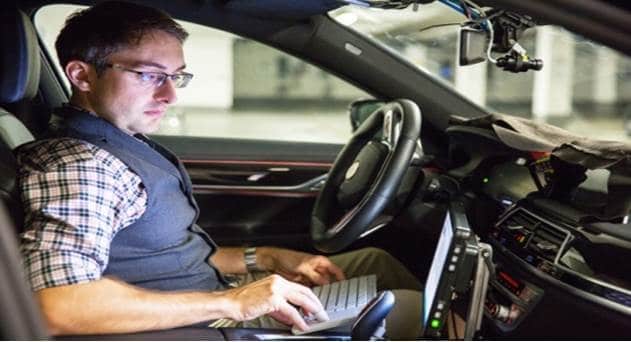BMW Group, Intel and Mobileye, Wednesday announced that a fleet of approximately 40 autonomous BMW vehicles will be on the roads by the second half of 2017, demonstrating the significant advancements made by the three companies towards fully autonomous driving.
Revealing this at a podium discussion held during a joint press conference at CES, the companies further explained that the BMW 7 Series will employ cutting-edge Intel and Mobileye technologies during global trials starting in the U.S. and Europe.
This news follows the partnership that was announced between the BMW Group, Intel and Mobileye in July of last year. The companies have since developed a scalable architecture that can be adopted by other automotive developers and carmakers to pursue state of the art designs and create differentiated brands. The offerings scale from individual key integrated modules to a complete end-to-end solution providing a wide range of differentiated consumer experiences.
As part of this partnership, the BMW Group will be responsible for driving control and dynamics, evaluation of overall functional safety including setting up a high performance simulation engine, overall component integration, production of prototypes and eventually scaling the platform via deployment partners.
Intel brings to the partnership innovative high performance computing elements that span from the vehicle to the data center, including its newly launched Intel GO solution for autonomous driving. Within the car, the Intel GO solution offers a scalable development and compute platform for critical functions including sensor fusion, driving policy, environment modeling, path planning and decision making.
Mobileye contributes its proprietary EyeQ5 high-performance computer vision processor offering automotive-grade functional safety and low-power performance. The EyeQ5 is responsible for processing and interpretation of input from the 360-degree surround view vision sensors as well as localization. EyeQ®5, in combination with Intel CPU and FPGA technologies, forms the Central Computing Platform to be integrated into each autonomous vehicle.
To further propel the development of the autonomous platform, the partnership plans to release hardware samples and software updates in the upcoming years. The BMW iNEXT model, which will be introduced in 2021, will be the foundation for BMW Group’s autonomous driving strategy. Following this vehicle, a range of highly automated models from all BMW Group brands will follow, said the company.
Klaus Frohlich, Member of Board of Management of BMW for Development
Making autonomous driving a reality for our customers is the shared ambition behind our cooperation with Intel and Mobileye. This partnership has all of the skills and talent necessary to overcome the enormous technological challenges ahead and commercialize self-driving vehicles.
Brian Krzanich, CEO, Intel
From an industry perspective, we are already seeing savings and speed in development by sharing development costs and in pooling resources to develop a complete autonomous platform. The car to cloud system will perform with consistent, predictable behavior and is validated to the highest level of safety.




















